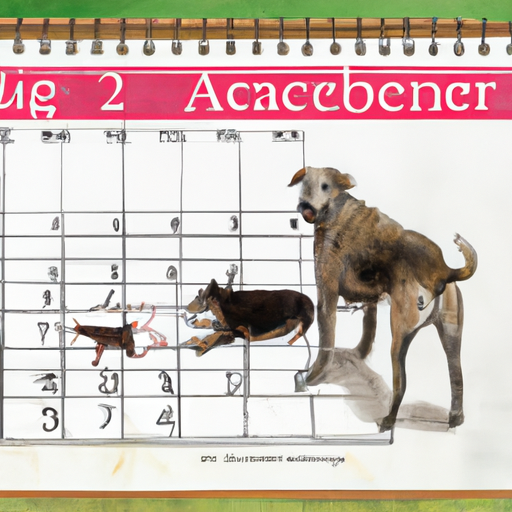“`markdown
Dogs Are Pregnant for How Long?
As a dog owner, or someone who cares deeply about dogs, you’ve probably wondered about the canine gestation period. Today, we’re going to explore this topic in detail.
Understanding Canine Pregnancy
You’ve seen it in nature documentaries, heard about it from friends, but experiencing it firsthand is entirely different. A pregnant dog, much like a pregnant human, goes through various stages in her pregnancy, each with its unique challenges and joys.
Canine pregnancy lasts approximately 58-65 days, or around two months. However, variations can occur depending on the breed and size of the dog. Smaller breeds tend to have a shorter gestation period, while larger breeds may carry their puppies a bit longer.
The Stages of Canine Pregnancy
-
The First Stage (0-3 weeks): This is when fertilization occurs. You might not notice any significant changes during this period, but rest assured, there’s a lot happening inside your furry friend.
-
The Second Stage (3-5 weeks): This is when embryos start to develop. Your dog may gain weight, and her belly might begin to swell. She might also show signs of morning sickness.
-
The Third Stage (5-7 weeks): Puppies continue to grow. Your dog’s belly will become noticeably bigger, and she may start to display nesting behavior.
-
The Final Stage (7-9 weeks): This is when puppies are ready to be born. Your dog will start to look for a safe place to birth her puppies. You’ll notice her becoming restless and might refuse to eat.
Recognizing the Signs of Pregnancy
Several signs might indicate that your dog is pregnant, including:
- Increased appetite
- Weight gain and bloated belly
- Changes in nipple color and size
- Lethargy and more frequent napping
- Changes in behavior, such as increased affection
However, these signs aren’t definitive proof of pregnancy. The best way to confirm a pregnancy is through a visit to your vet.
How to Care for a Pregnant Dog
Your role as a caregiver is vital during this period. Here are some pointers:
-
Nutrition: Feed her high-quality dog food that’s rich in essential nutrients. As her pregnancy progresses, she’ll need increasing amounts of food.
-
Exercise: Regular, gentle exercise is crucial. However, avoid strenuous activities that could harm her or the puppies.
-
Vet Care: Regular check-ups are essential to monitor her health and the development of the puppies.
The Birth Process
The birth process, also called whelping, can be stressful for both you and your dog. It’s essential to have your vet’s number on speed dial, and ensure that your dog has a comfortable, quiet place to give birth.
| Stages of Whelping | Duration |
|---|---|
| First Stage (Contractions Begin) | 6-12 hours |
| Second Stage (Puppies are Born) | 3-12 hours |
| Third Stage (Afterbirth is Expelled) | Up to 24 hours after the last puppy is born |
Frequently Asked Questions
Q: Can you use a pregnancy test on a dog?
A: No, human pregnancy tests don’t work on dogs. Consult your vet for a proper diagnosis.
Q: How can I make my pregnant dog comfortable?
A: Provide a quiet and comfortable space, keep her well-fed, maintain regular exercise, and give her plenty of attention and care.
Q: Can a dog get pregnant at any time?
A: No, dogs can only get pregnant during the estrus stage of their heat cycle, which happens approximately twice a year.
Q: What should I feed my pregnant dog?
A: A balanced diet is crucial during this time. Consider premium-quality dog food, and consult your vet for specific dietary advice.
In conclusion, the journey of canine pregnancy is a complex but rewarding process. As a caregiver, your role is paramount in ensuring the health and well-being of both the mother and her puppies.
“`



